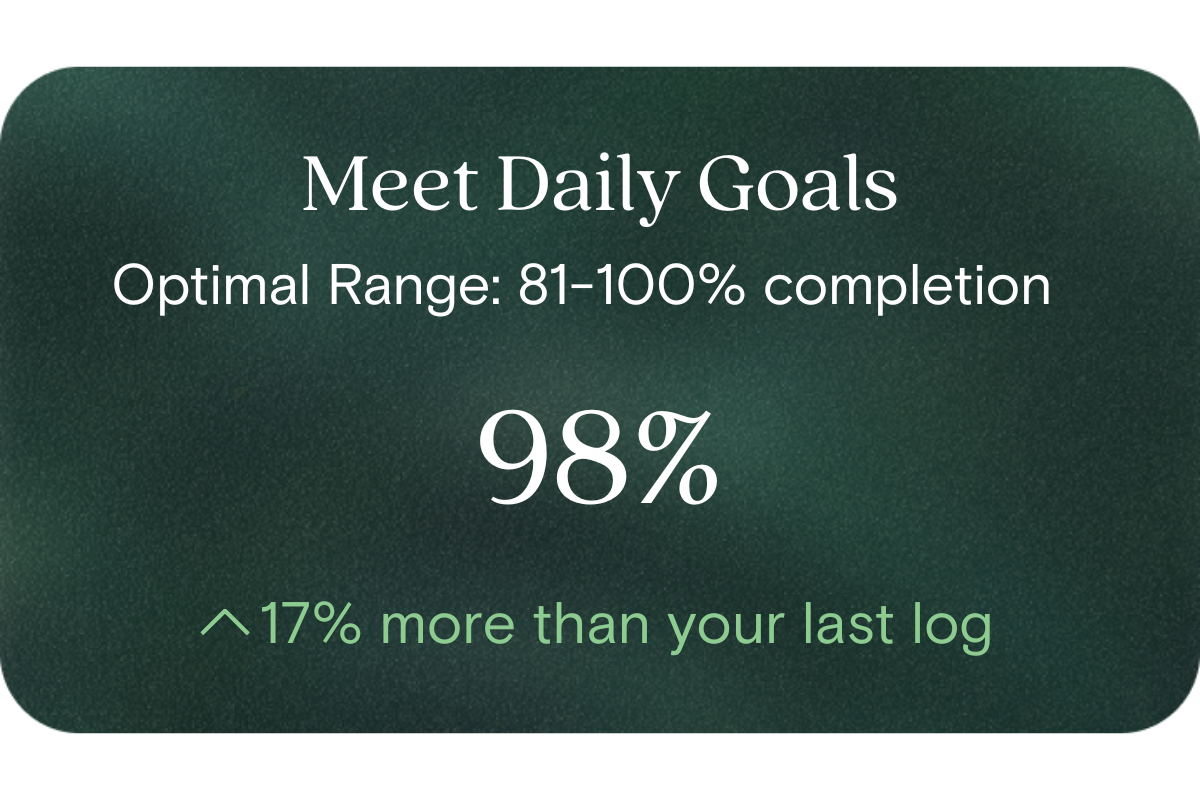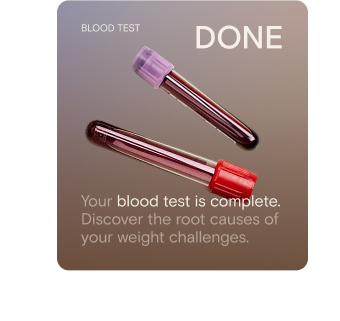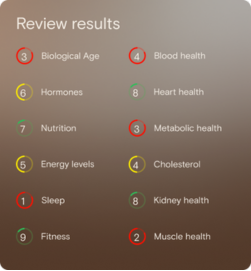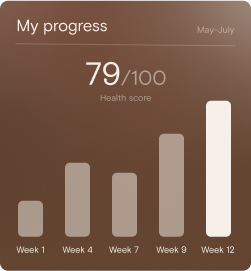What is Meet Daily Goals?
‘Meet Daily Goals’ measures how consistently you complete your Vively-prescribed daily habits. Expressed as a percentage, it shows how well your actions align with your personalised health plan.
Why does it matter for long-term health and wellbeing?
Consistency is key to sustaining energy, balance, and metabolic efficiency. Meeting your daily goals regularly supports long-term behavioural stability, which contributes to better overall wellbeing and performance.
What’s an optimal level of Meet Daily Goals?
- Optimal range for health and wellbeing: 81–100% completion
- Typical Australian reference range:
- 20% = 0–20% completion (Pay attention)
- 40% = 21–40% completion (Sub-optimal)
- 60% = 41–60% completion (Good)
- 80% = 61–80% completion (Optimal)
- 100% = 81–100% completion (Excellent)
What influences Meet Daily Goals levels?
Factors such as time management, motivation, sleep quality, energy levels, and external stressors can affect your ability to meet daily goals. Environmental and behavioural consistency play a large role in maintaining optimal levels.
What does it mean if Meet Daily Goals is outside the optimal range?
Falling below the optimal range may indicate challenges with routine, recovery, or focus. This is a valuable signal to reassess your daily structure and identify where small adjustments could restore balance and progress.
How can I support healthy Meet Daily Goals levels?
- Schedule habits at the same time each day to build routine.
- Use gentle reminders or digital tracking for accountability.
- Prioritise rest, balanced nutrition, and regular movement to sustain energy.
- Reflect weekly on which habits feel most achievable and adjust accordingly.
This information is provided for general health and wellness purposes only and does not replace medical advice.
References
- Lally, P., van Jaarsveld, C. H. M., Potts, H. W. W., & Wardle, J. (2010). How are habits formed: Modelling habit formation in the real world. European Journal of Social Psychology, 40(6), 998–1009.
- Prochaska, J. O., & Velicer, W. F. (1997). The transtheoretical model of health behavior change. American Journal of Health Promotion, 12(1), 38–48.




















.png)


.svg)

